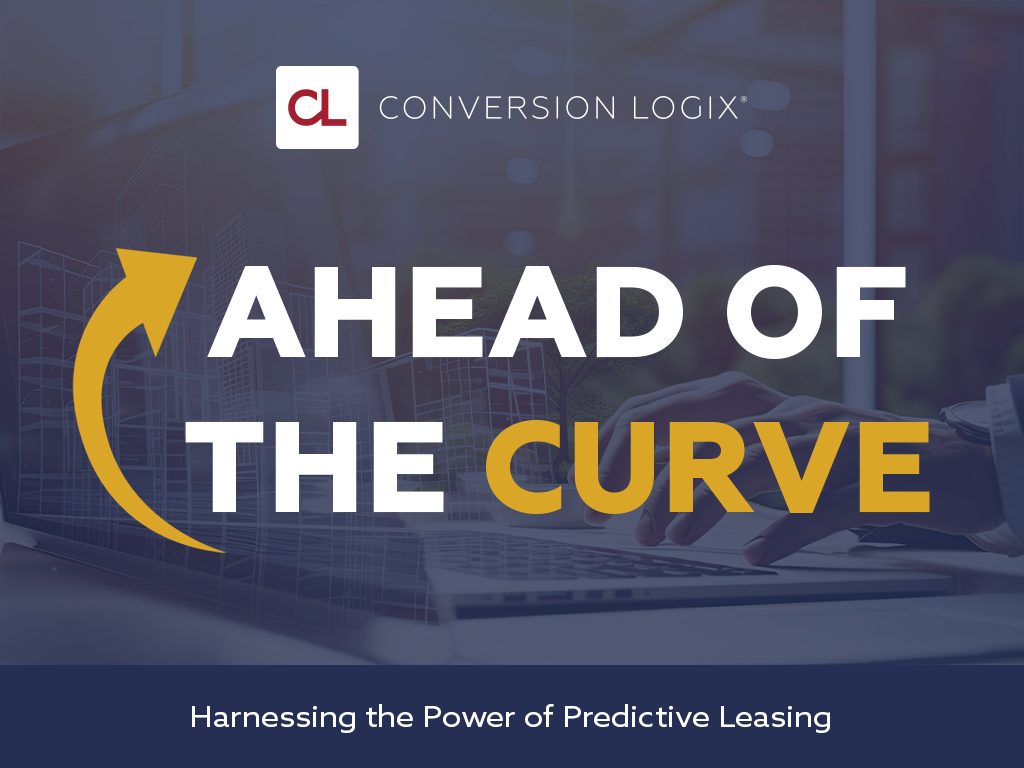Ahead of the Curve: The Power of Predictive Leasing™
- 19 April 2024

As Conversion Logix set on a new course toward revolutionizing Predictive Leasing in the multifamily housing industry with its acquisition of Bend.ai, we sat down with our new Chief Analytics Officer and Bend.ai co-founder, Martin Stein, to discuss the state of predictive analytics in the industry and how new technology and data science methods will transform the industry for the better.
Tell us about your analytics background and the story behind Bend.ai.
I’ve had a career in tech and multifamily marketing, working at organizations such as IDG, Apple, and G5. Over the course of my career, I’ve focused on the intersection of data science, marketing technology, and automation and built solutions for Marketing Attribution Modeling, Call Scoring, and Budget Optimization, among other initiatives.
In the past four years, I’ve applied those experiences to build my own data science consultancy, Bend.ai, which focused on attribution solutions and mastering today’s cookie challenges.
You mentioned applying data science to improve attribution. Can you speak to the current state of attribution in the industry and where you’ve seen the greatest room for improvement?
Marketers in the multifamily housing industry are used to reviewing monthly move-in reports along with statistics like marketing spend, conversion rates, tours, and more. These figures are interrelated, yet the nature of their relationship often remains unclear.
Today’s marketers often find themselves relying on heuristics — mental shortcuts and rules we’ve developed, beliefs that outline the assumed relationship between our marketing activities and business outcomes. We assume how first-touch, last-touch, or even multi-touch affect move-in. But these models don’t directly dictate the probabilities of a move-in. Furthermore, the digital landscape is evolving where reliance on cookies for tracking user behavior is diminishing.
This is where data science can come into play.
With cutting-edge data science techniques, we can build predictive analytics tools like Predictive Leasing™ to understand the relationships between marketing activities in the customer journey.
This provides a holistic view of the customer acquisition processes, allowing marketers to measure the impact of each channel and campaign, facilitate an assessment of potential conversion rates, and clarify the contribution of specific initiatives within the overall marketing mix.
Tell us more about how predictive leasing works.
The purpose of Predictive Leasing™ is to determine the probability of move-ins based on past customer journey patterns. By tracking individual customer journeys at scale, we can identify patterns and relationships that will help us understand what has the greatest impact on leasing results at a specific property.
To do this, we take a path from one lead — which sites they visited and what campaign links they clicked — and compare it with other lead paths to draw conclusions about campaign effectiveness and buyer behavior. We observe which touchpoints are common among those who converted and those who did not, which types of campaigns led to tours, and which patterns result in move-ins at specific property types. Part of the process involves simulations and tests to see what happens when we remove aspects of a campaign to determine their impact. Armed with this information, we can then identify campaigns that don’t work, add ones that may, and optimize those that are already yielding results.
Who benefits the most from Predictive Leasing™, and what is its biggest advantage?
Predictive Leasing™ benefits apartment marketers, operators, and owners by providing them with access to better campaign insights and data management. With a good data infrastructure, everyone is freed hours and hours of laboring over reports to get information that may or may not affect a lead’s probability of booking a tour or moving in. Instead, marketers, operators, and owners are given actionable data that leads to better decisions and optimizations when it comes to marketing a property. There’s less guessing, more accuracy, and better strategy insights.
How do you envision the industry changing once this technology becomes mainstream?
Predictive Leasing™ built on first-party data will be instrumental in helping organizations maintain and improve marketing performance in a cookie-less world. The attribution aspect of the technology will help marketers measure and communicate the value of their campaign recommendations and guide operators and owners toward the most cost-effective solutions, which will put markers in a great position going forward.
The key to using this technology to its greatest potential will rely on striking the right balance between leveraging data science and AI and having human experts in the loop. The technology won’t do all the work, and human expertise will be needed in the mix. As marketers, we will need to spend more time becoming strategic and less tactical.
Coming Soon: Conversion Logix and Predictive Leasing™ to Keep You Ahead of the Curve
Now armed with Bend.ai’s cutting-edge artificial intelligence capabilities, Conversion Logix is in the process of developing a Predictive Leasing platform that will provide our clients with advanced solutions that identify optimal marketing mixes and advertising budgets at scale. We look forward to sharing more news about the platform in the coming months so don’t forget to subscribe to our newsletter for updates.
Schedule a Call